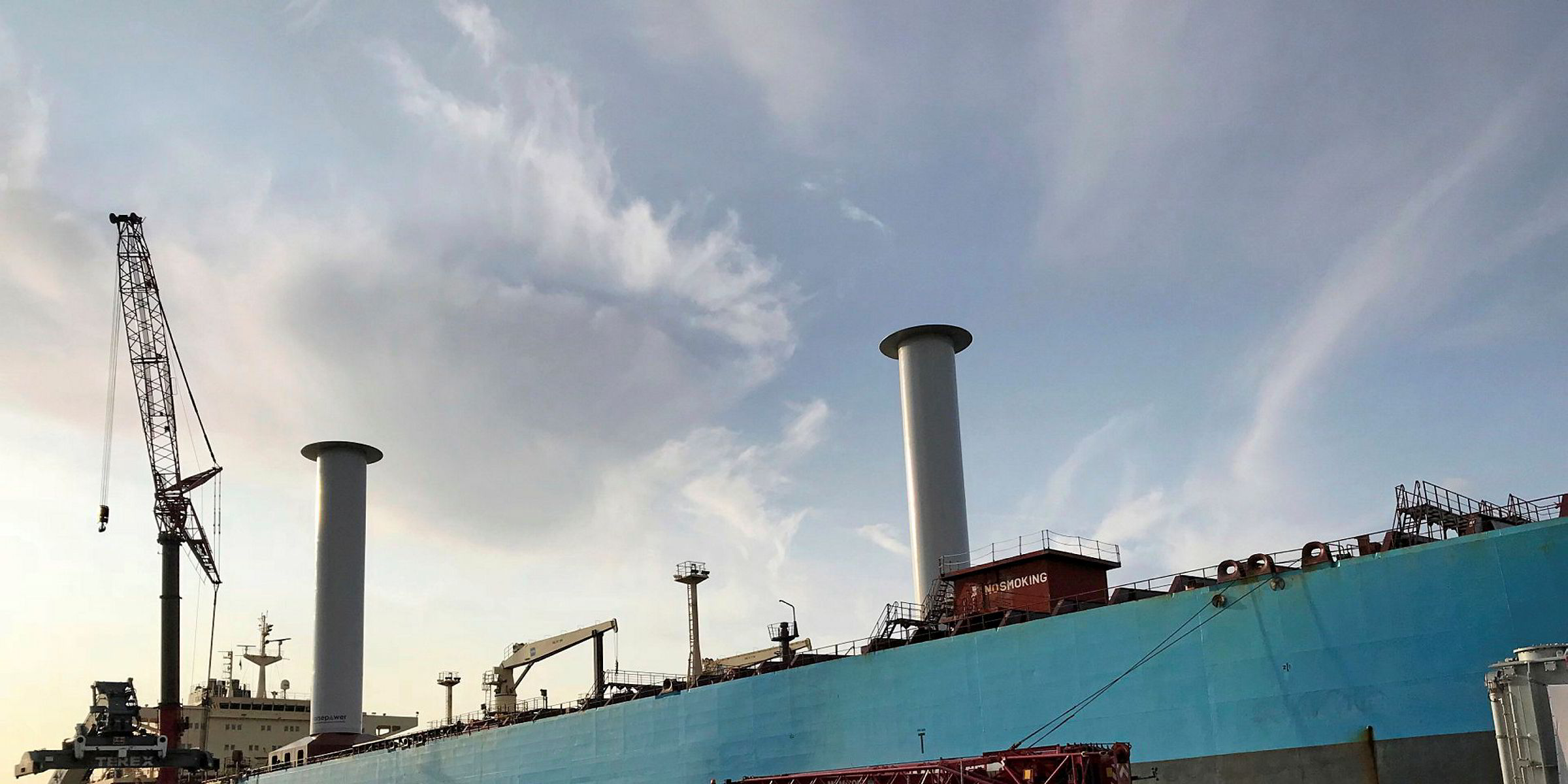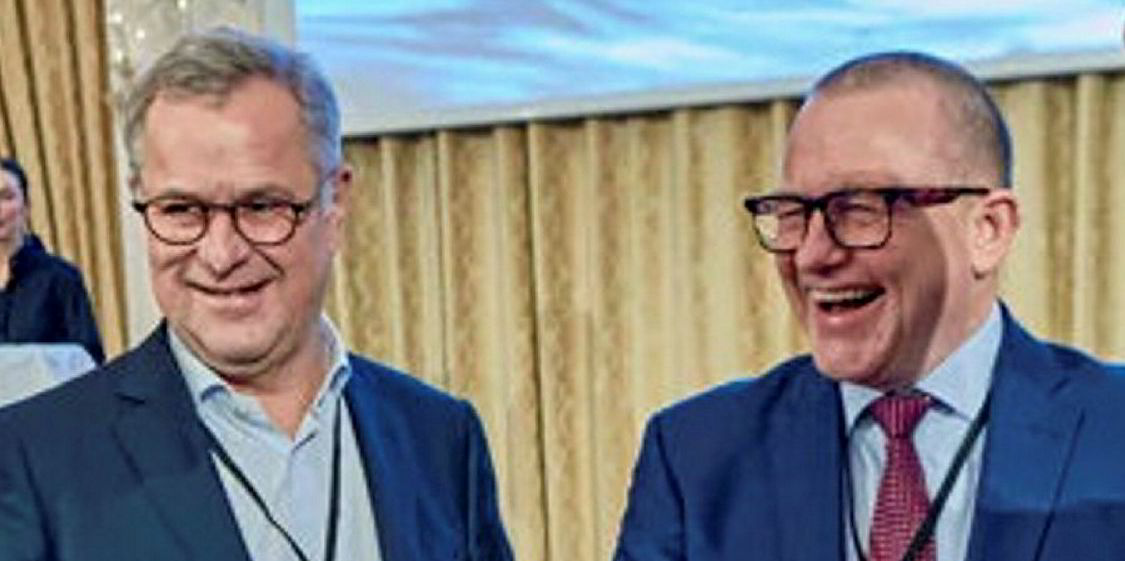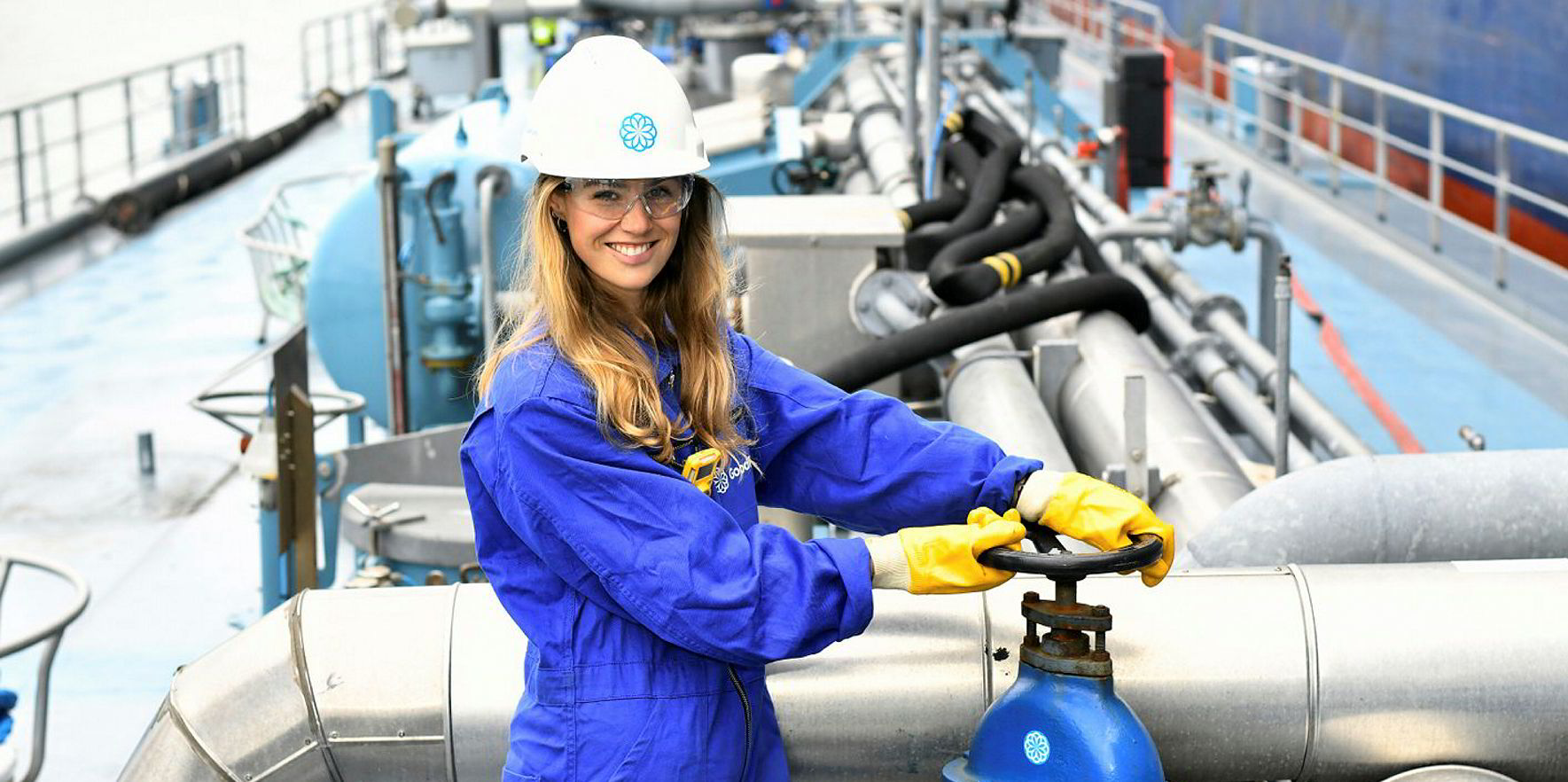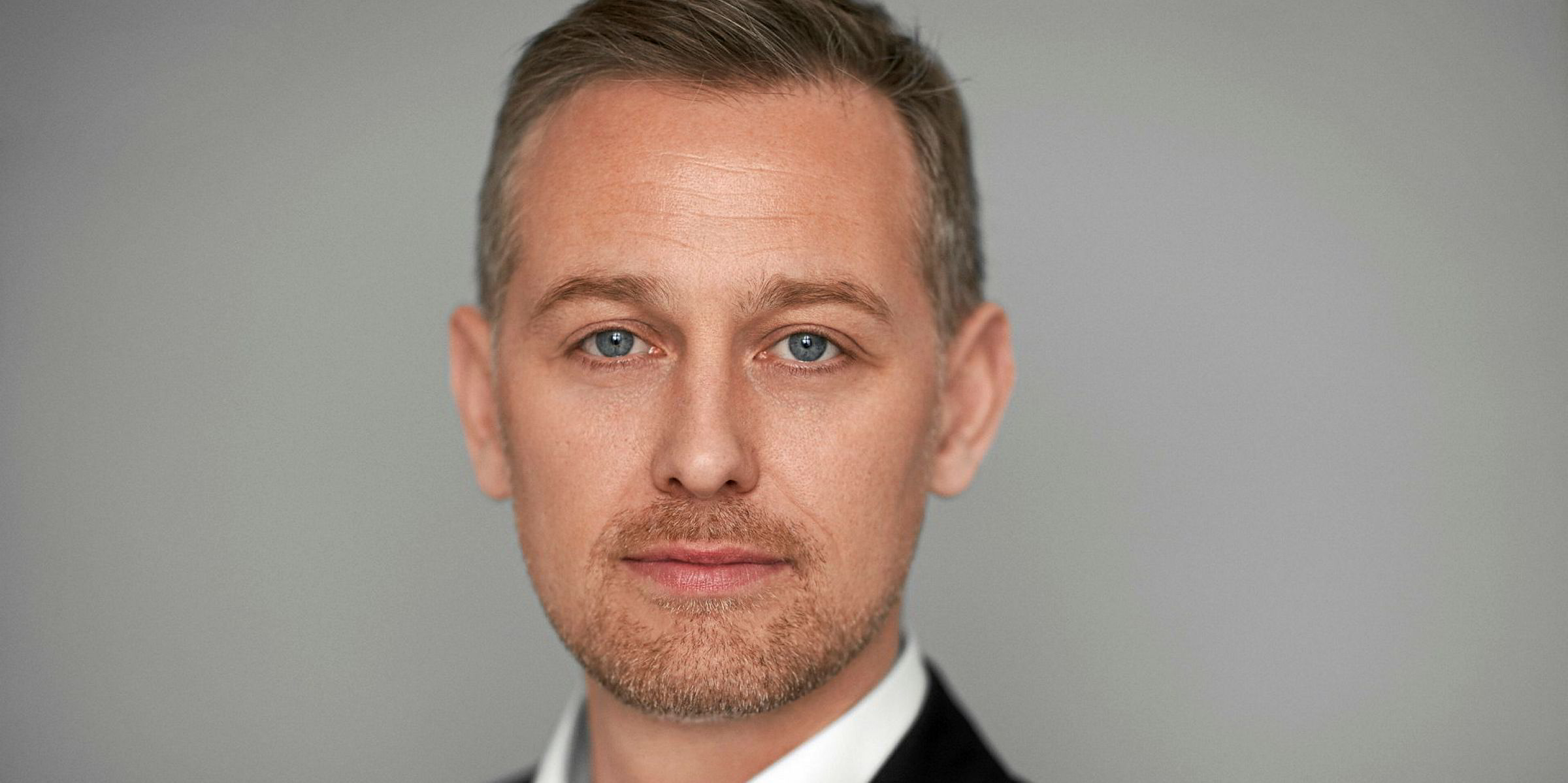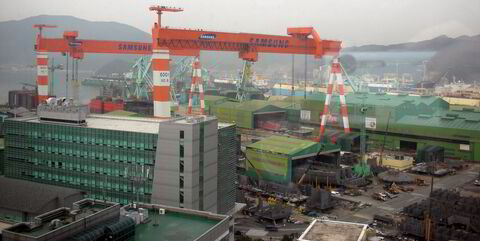Maersk Tankers’ top executive has vowed to continue to promote decarbonisation in the shipping industry despite any setbacks from the Covid-19 pandemic.
Serving as the chief executive of both Maersk Tankers and Maersk Product Tankers (MPT), Christian M Ingerslev suggested that investing in low-emission shipping technology could make financial sense.
This is because he said Maersk Tankers — the world’s largest pool manager of product tankers — offers better payouts to shipowners based on the bunker consumption of their ships.
“We have a pool model, where if you invest into fuel optimisation, you get the benefit,” Ingerslev told TradeWinds.
And since MPT — the shipowning entity — deploys all of its vessels to Maersk Tankers’ pools, Ingerslev suggested his companies are walking the talk.
In August 2018, rotor sails were installed on the 110,000-dwt Maersk Pelican (built 2008) to help propel the vessel forward via the Magnus Effect.
In a year-long trial, the LR2 was found to have cut bunker consumption by 8.2% and CO2 emissions by the equivalent of 1,400 tonnes.
Maersk Tankers has also participated in ShippingLab, which has several decarbonisation projects, and the Getting to Zero Coalition alliance, which aims to develop commercially viable zero-emission ships by 2030.
“Through those learnings, we will constantly evaluate what is attractive from an acquisition point of view for Maersk Product Tankers”, which, according to Ingerslev, aims to cut fleet-wide CO2 emissions by 30% by 2021 from a 2008 baseline.
While some companies said they would only build new, low-emission ships backed by long-term charters, Ingerslev said green investments for vessels in the spot trade could make financial sense via lower fuel consumption.
Fuel optimisation
Ingerslev said Maersk Tankers will look at investments in fuel optimisation technology “because it makes financial sense”.
“There's a large incentive for investors that, when they invest into new technology that can improve the fuel efficiency, they should really utilise that efficiency in the spot market,” he said.
To fight climate change, the IMO has set targets to reduce carbon intensity of international shipping by 40% before 2030 and halve greenhouse gas emission by 2050 compared to the 2008 levels.
But a European Community Shipowners’ Associations survey in April showed 44% of its members would not invest in decarbonisation due to the financial impact of Covid-19, while 30% would reduce investments.
“There's always a risk in the situation where there is a crisis or extreme volatility that you lose focus on the long term,” Ingerslev warned.
“It will be a huge mistake to take the eye off the ball. We have a real opportunity in investing into the future of shipping by reducing emissions.”
